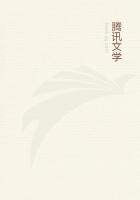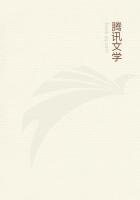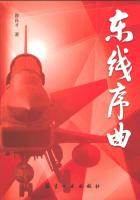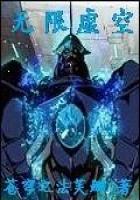For the present,the teleological argument in the Paley form,triumphantly set forth in Bridgewater treatises and the like,rested the defence of theology on the proofs of the discontinuity of the universe and the consequent necessity for admitting supernatural interference.Science was therefore invoked to place absolute limits on its own progress.
But other vital difficulties were already felt.The argument from contrivance naturally implies limitation.
The maker of a machine is strictly limited by the properties of the matter upon which he works.The inference might be verbally saved by saying that the maker was 'potentially'omnipotent;but the argument,so far as it goes,is more easily satisfied by the hypothesis of a Being of great but still limited powers.The Deity so proved,if the proof be valid,is not himself the ground of the universe,the Source from which nature itself emanates,as well as the special laws of nature,but a part of the whole system;interfering,guiding,and controlling,but still only one of the powers which contribute to the formation of the whole.Hence arise questions which theologians rather evaded than attempted to answer.If with the help of Paley we can prove the existence of an invisible Being --potentially omnipotent,though always operating as though limited --there would still remain the question as to his attributes.He is skilful,we may grant,but is he benevolent or is he moral?The benevolence could of course be asserted by optimists,if facts were amenable to rhetoric.But a theory which is essentially scientific or empirical,and consistently argues from the effect to the cause,must start from an impartial view of the facts,and must make no presupposition as to the nature of the cause.The cause is known only through the effects,and our judgment of them cannot be modified by simply discovering that they are caused.If,then,contrivance is as manifest in disease as in health,in all the sufferings which afflict mankind as well as in the pleasures which solace him,we must either admit that the creator is not benevolent,or frankly admit that he is not omnipotent and fall into Manichaeism.Nature,we are frequently told,is indifferent if not cruel;and though Paley and his followers choose to shut their eyes to ugly facts,it could be only by sacrificing their logic.They were bound to prove from observation that the world was so designed as to secure the 'greatest happiness'before they could logically infer a purely benevolent designer.It was of the very essence of their position that observed facts should be the ultimate basis of the whole theory;and to alter the primary data by virtue of deductions drawn from them could obviously not be logically justifiable.
Such reflections,though sufficiently obvious,might be too far from practical application to have much immediate effect.But the question of the moral bearing of theology was of more interest;and,here,the coincidence of the Utilitarianism with the accepted theology of the day is especially important.The Deity regarded as the artificer appears to be far from purely benevolent.In respect to morality,is he not simply indifferent?Does he not make men fragile and place them amidst pitfalls?Does he not constantly slay the virtuous and save the wicked?How,indeed,from the purely empirical or scientific base,do you deduce any moral attributes whatever?'Natural theology,'as it was called,might reveal a contriver,but could it reveal a judge or a moral guide?Here the difficulty of a purely matter-of-fact theology made itself felt on many sides.The remarkable influence of Butler upon many minds was partly due to a perception of this omission.Butler avowedly appeals to the conscience,and therefore at least recognises God as directly revealed in a moral character.That seemed to supply a gap in the ordinary theology.But in the purely empirical view Butler's argument was untenable.It appealed to one of the 'intuitions'which were incompatible with its fundamental assumptions.The compunctions of conscience were facts to be explained by 'association,'not to be regarded as intimations of wrath.Butler's view might be inverted.The 'conscience'does,in truth,suggest the divine wrath;but that only means that it suggests the quack remedies upon which 'wonder-working'priests establish their power,instead of proving the truth of the religion,it explains the origin of superstition.
To James Mill,as we have seen,Butler's argument would logically prove not a righteous governor but a cruel creator.Theologians,again,of the Paley school,were bound in consistency to the empirical or Utilitarian view of morality.Paley accepted the consequences unreservedly;and if such philosophers as Brown and Mackintosh persisted in regarding the coincidence between morality and happiness as indicative of a pre-established harmony,not of an identification of morality with the pursuit of general happiness,they still admitted that 'utility'was the 'criterion'of morality.The moral law,that is,coincides in its substance with the law,'maximise happiness,'and happiness means,as 'Philip Beauchamp'calls it,'temporal'happiness --the happiness of actual men living in this world and knowing nothing of any external world.How,then,is the moral law related to theology?
To know what is moral,we must appeal to experience and 'utility.'We must discover what makes for happiness,just as in medicine we must discover what makes for health or pleasure,by the ordinary methods of observation.
What place is left for any supernatural intervention?The ostensible answer was that though the moral code could be deduced from its utility,the motives by which it was to be enforced required some supernatural agency.The natural man might see what was right,but need not therefore do what was right.















